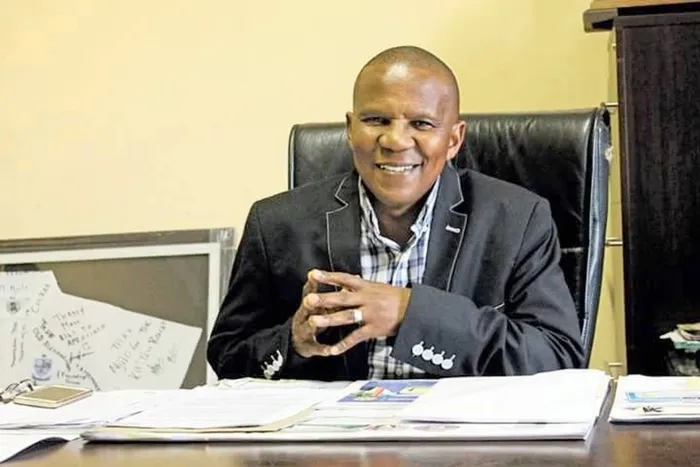The harsh realities of local politics: Insights from former Msunduzi mayor Themba Njilo

Former Msunduzi Municipality mayor Themba Njilo has described the tough period he had at the helm of the province's capital city.
Image: Independent Newspapers Archives
Former mayor of the Msunduzi Municipality, Themba Njilo, has shared some sobering views of his time in politics, saying many who take up the mayoral chains have bright ideas to grow the city but face fierce opposition and challenges.
As parties begin announcing their mayoral candidates ahead of next year's local government elections, Njilo, in a candid interview with The Mercury, characterised his years as mayor as the most challenging and unproductive period he has ever experienced in a leadership role.
Njilo, a businessman, spoke about his experience as an outsider stepping into a fraught and complex environment of local politics.
The Democratic Alliance (DA) recently announced their candidates for mayor in eThekwini and Johannesburg while Action SA has announced its candidate for Ekhurhuleni.
The DA introduced Haniff Hoosen as its mayoral candidate in eThekwini and Helen Zille for Johannesburg, while ActionSA announced Xolani Khumalo as its mayoral candidate for Ekurhuleni.
Khumalo, a TV personality, has gained public credibility through his crime-fighting TV shows that expose drug dealers. However, he comes to the position as a novice, with no publicly known experience in politics or running a municipality.
Political analysts believe that this move could help ActionSA grow. However, Njilo warned that, based on his experience, local government presents a different challenge where one’s belief in the faith the public has in them is undermined by fierce opposition from within councils.
Njilo, who was a successful businessman before entering politics, was brought to the Msunduzi council by the ANC in hopes that his experience in business and philanthropy would lend a veneer of respectability to a municipality whose image was in tatters at the time.
This approach stood in stark contrast to the ruling party's preferred method of electing leaders, which typically favours individuals who have served the party for extended periods as its deployees.
“Coming from outside to be in politics might differ from person to person, but for me, that was the worst period of my life. It was so bad that every time I went to work in the morning, I told my family I was going to a place where ‘hope goes to die’”, he said.
“When you are in that environment, you can come in with all these ideas, and you find that you are being blocked, argued with, or treated with suspicion. You can put forward many ideas, but find that none are implemented.
“I went in there having built more than 60 houses for communities in need (through his philanthropy work), but while there, putting forward any suggestion to try and improve the lives of the people, it is viewed as if you are self-promoting. You go there with energy, with the community believing you will change their lives, only to have all that power sapped from you. You can't do anything.
“There are political parties that have approached me, wanting me to be part of them, and I have declined,” he said.
Political analysts have warned that parties should consider the ActionSA model to put forward candidates respected by communities. This model has shown promise in fostering trust and engagement between political representatives and their constituents.
Analyst Bongani Mahlangu, speaking on Khumalo's nomination, told a news channel, “Xolani is a known figure; we do not know his competence when it comes to political leadership, but surely, due to his popularity fighting drugs, he might generate votes and grow beyond what they are currently sitting at.”
Regarding the selection processes of the ANC, there is a push for councillors to have a certain level of academic credentials.
Siyabonga Ntombela, another analyst, said the ANC faltered by not adhering to its fundamental document on selecting the best leaders.
“The way the ANC is deploying its members is neither strategic nor transformative, but purely clumsy and directionless. The only deployment that has yielded good results is that of the Minister of Electricity. For the first time, we see Eskom making a profit,” he said.
Analyst Daniel Silke stated that political parties use popular individuals to attract voters.
However he said it is not a ticket to increase support; political parties gain support after they have proven themselves over time through performance and ethical behaviour in the eyes of voters.
For the ANC, increasing poor performance in service delivery and ethical standards means that voters will be more critical of the candidates and councillors, he said.
“The ANC poor performance makes it more difficult for community members to come forward, as they do not want to be associated with the way the party has run municipalities. This makes their pool of ethical leaders and talent significantly smaller. Back to basics: finding credible individuals,” he said.
Related Topics: